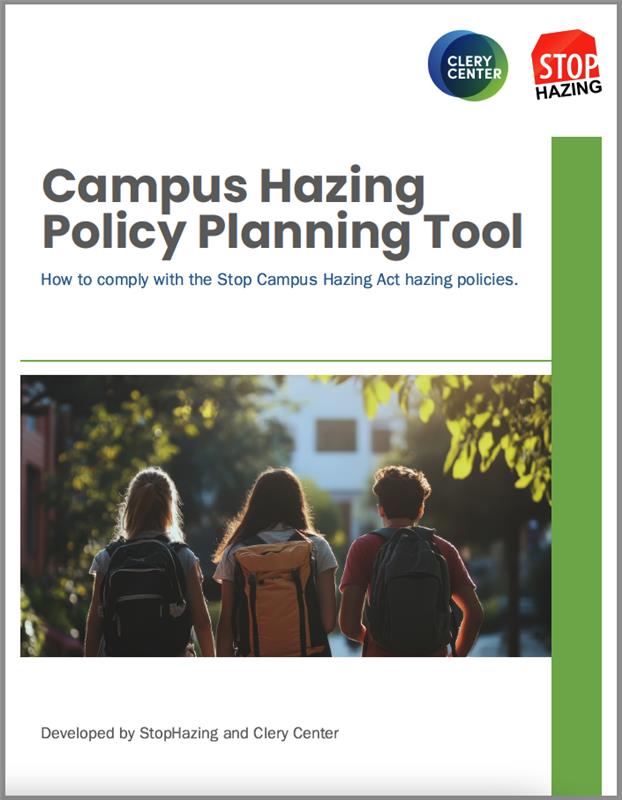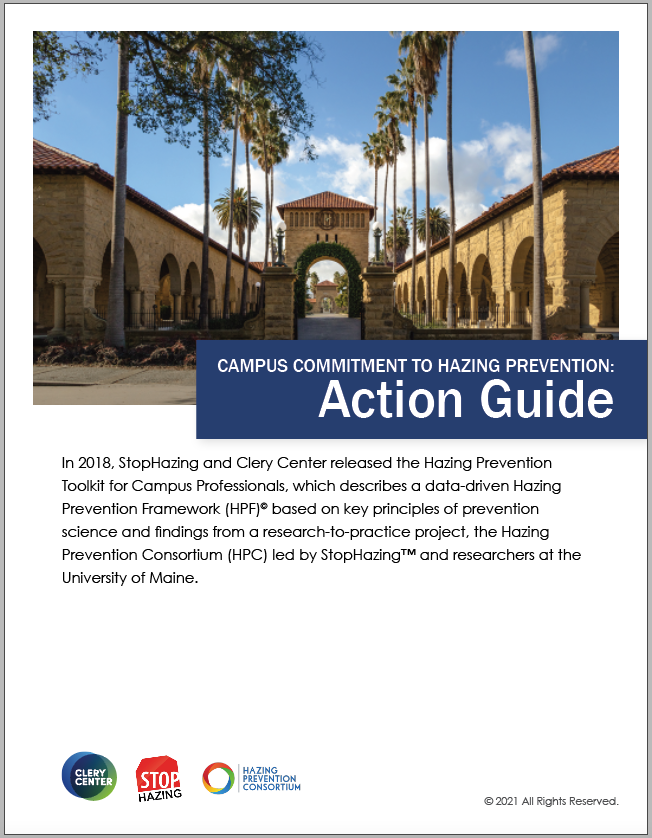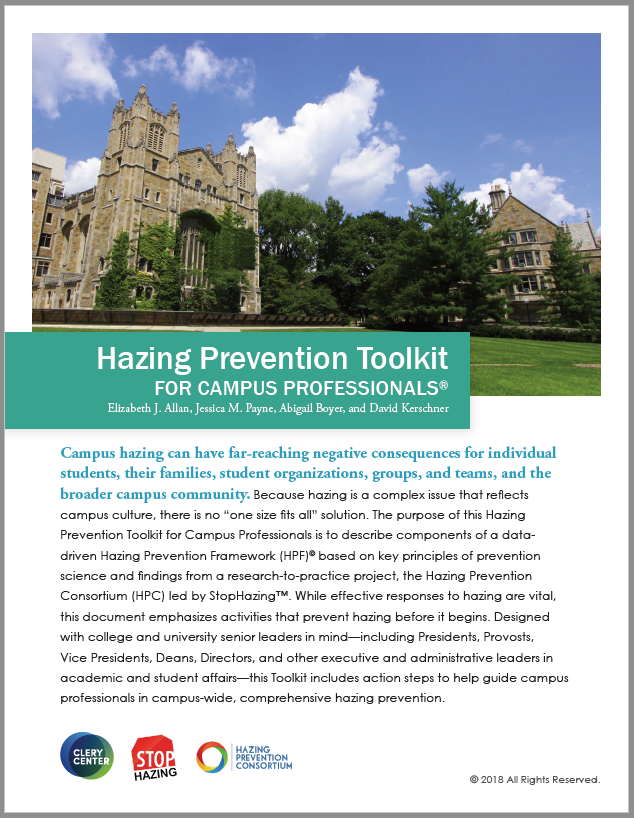The Stop Campus Hazing ActThe Stop Campus Hazing Act (SCHA) (S.2901, H.R.5646) passed into law on December 23, 2024. The Stop Campus Hazing Act is a crucial step towards eradicating hazing on college campuses and ensuring the safety and well-being of students. This bipartisan, evidence-informed legislation is supported by national campus safety experts, national fraternity and sorority trade associations, and the parents of hazing victims. Read our blog, A Historic Step Forward: The Stop Campus Hazing Act Becomes Law, to learn more about the history and passage of SCHA. The Stop Campus Hazing Act will:
Implementation timeline:
What resources does Clery Center have available to help?
Read more in our blog, The Stop Campus Hazing Act: What You Need to Know, and please reach out to us if you have any questions at [email protected]. What is hazing?
Hazing is any activity expected of someone joining or participating in a group that humiliates, degrades, abuses, or endangers them, regardless of a person’s willingness to participate. There are three components that define hazing:
Definition via: StopHazing Research Lab. (2020, December). Hazing: The Issue, StopHazing Consulting. https://www.stophazing.org/issue
Clery Center’s Hazing Prevention & Education ResourcesCreated in partnership with StopHazing “We Don’t Haze” documentary film & supplemental resourcesIn this short film, families and victims of hazing testify to the true impact these so-called “traditions” have on campus communities. We take a deeper look at the causes and consequences of hazing and speak to leaders who have pledged to help end these practices. We Don’t Haze helps identify hazing behaviors, and offers organization leaders alternative traditions that promote a safer, more positive team-building experience. The We Don’t Haze Companion Guide provides you with the tools to educate yourself and your community about campus hazing and facilitate programming for students, staff, and faculty using We Don’t Haze. LEARN MORe about we don't haze Campus Hazing Policy Planning Tool
The Campus Hazing Policy Planning Tool was developed by StopHazing and Clery Center to help institutions strengthen their campus hazing policy and the required annual security report (ASR) policy statements under the Stop Campus Hazing Act (SCHA). Passed in December 2024, SCHA requires institutions to include specific hazing policy statements in their ASRs, making it essential for campuses to review and update existing policies or develop new ones where gaps exist. This resource provides insight and guidance to help campuses evaluate their current hazing policies, understand required ASR policy elements, and identify opportunities for improvement. Using reflection questions, notes sections, and action-planning prompts, the tool supports both individual practitioners and cross-functional teams as they plan policy updates, clarify scope and definitions, and align campus practices with federal requirements and emerging best practices.
Campus Commitment to Hazing Prevention: Action Guide
In 2018, StopHazing and Clery Center released the Hazing Prevention Toolkit for Campus Professionals, which outlines the data-driven Hazing Prevention Framework© (HPF). The Campus Commitment to Hazing Prevention: Action Guide provides practical resources focused on one of the HPF components — commitment. Use the Action Guide to engage campus leaders and the broader campus community in eliminating campus hazing culture and transforming group environments to support healthy belonging and well-being for all students.
Hazing Prevention Toolkit for Campus Professionals®
While effective responses to hazing are vital, this document emphasizes activities that prevent hazing before it begins. Designed with college and university senior leaders in mind—including Presidents, Provosts, Vice Presidents, Deans, Directors, and other executive and administrative leaders in academic and student affairs—this Toolkit includes action steps to help guide campus professionals in campus-wide, comprehensive hazing prevention. Usage GuidelinesAs a national nonprofit, Clery Center strives to make many of its resources and programs free of cost and available to the public. If you would like to use or share any of these resources, please read our usage guidelines. |




 Campus hazing can have far-reaching negative consequences for individual students, their families, student organizations, groups, and teams, and the broader campus community. Because hazing is a complex issue that reflects campus culture, there is no “one size fits all” solution. The purpose of this Hazing Prevention Toolkit for Campus Professionals is to describe components of a data-driven Hazing Prevention Framework (HPF)
Campus hazing can have far-reaching negative consequences for individual students, their families, student organizations, groups, and teams, and the broader campus community. Because hazing is a complex issue that reflects campus culture, there is no “one size fits all” solution. The purpose of this Hazing Prevention Toolkit for Campus Professionals is to describe components of a data-driven Hazing Prevention Framework (HPF)